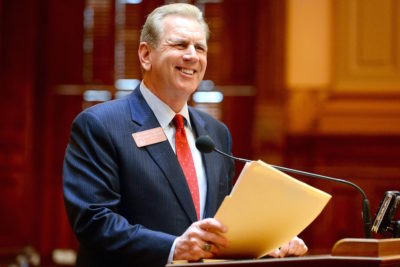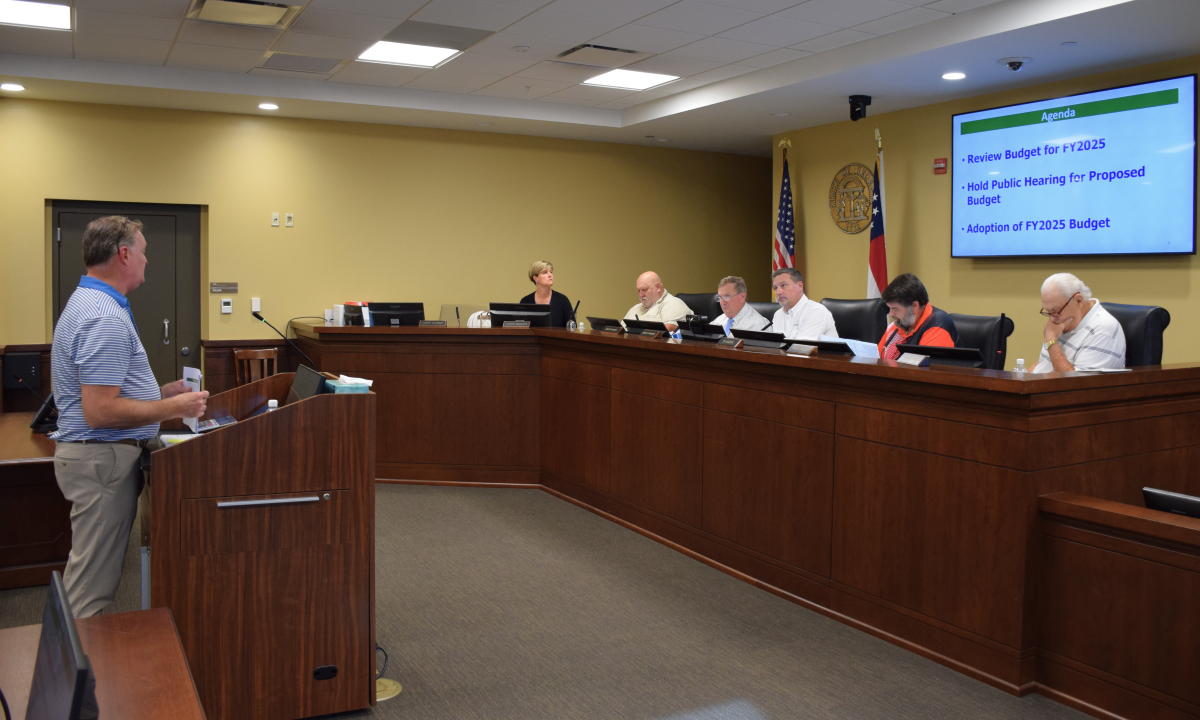
On Tuesday, November 13, 2018, the Georgia General Assembly convened for a special legislative session. The Constitution of the State of Georgia grants the governor the power to convene a special session of the General Assembly, and Governor Deal called for this special session to ask that the House and Senate take immediate action to amend the Fiscal Year 2019 state budget. Our purpose was to aid our Southwest Georgia communities that were ravaged by Hurricane Michael. The House and Senate convened for five days during this special session and amended the budget to provide approximately $270 million in emergency funding to the to help our neighbors in Southwest Georgia.
When Hurricane Michael made landfall in Southwest Georgia on October 9, 2018, it resulted in unprecedented losses for Georgia’s number one industry – agriculture, as well as the timber industry. As a result of Hurricane Michael, Southwest Georgia experienced approximately $2.5 billion in losses within the agriculture and timber industries. Of the damage, the University of Georgia Extension Agency reported an updated damage assessment of $550 million in cotton crop loss and a $13 million loss to the landscape and green industry. Georgia’s high-yielding vegetables, sweet corn, cucumbers, squash, peppers, tomatoes and peas are estimated to have received a $480 million loss, and Georgia pecan farmers in Southwest Georgia took an estimated $560 million loss. Michael also impacted Georgia’s poultry industry with the loss of 129 commercial houses and more than 2 million chickens, an estimated cost of $25 million. Estimations of peanut losses are also nearly $25 million. The Georgia Forestry Commission reports more than 37 million tons of timber were damaged or destroyed, resulting in nearly $763 million total losses.
On Thursday, November 15, 2018 the House overwhelmingly passed the amended budget to
provide approximately $270 million for state agencies and local governments in areas most heavily impacted by the hurricane. Of that $270 million, the amended budget allots over $69 million towards the Governor’s Emergency Fund for expenses related to damages and operating costs associated with the storm. While the federal government has provided a great amount of assistance, our state government is required to match a certain percentage in order to continue to receive federal aid. Aid allotted to the Governor’s Emergency Fund will benefit agencies such as the Georgia Emergency Management and Homeland Security Agency (GEMHSA) and the Department of Transportation for clearing debris and insuring the right equipment is available to assist in recovery efforts. Another beneficiary of this fund is the Department of Human Services (DHS). DHS will be able to provide grant opportunities to families that are in need of housing assistance through this difficult time.
The amended budget also allots $55 million to the Georgia Development Authority (GDA) for farmers that suffered agricultural losses in Southwest Georgia. Farmers will be able to access
funding opportunities through the GDA’s Landowner Assistance programs. An additional $20 million will be appropriated to GDA to directly assist cleanup efforts for the 2.3 million acres of timberland that were damaged or destroyed during the hurricane. Our farming and timberland industries are facing severe devastation to their crops, properties, and livelihoods, as well as the possible danger of wildfires from unremoved debris. The GDA will be able to use this additional funding to support our fellow Georgians while they rebuild their agricultural businesses.
An additional $25 million is designated in the amended budget for the OneGeorgia Authority to provide financial assistance to local communities and statewide economic development efforts that have been impacted by the hurricane. Similarly, $15 million will go towards Regional Economic Business Assistance (REBA) grants for projects that could have immediate statewide economic impact. These funds will allow the state flexibility to pursue economic development opportunities in the areas affected by the storm.
Finally, the amended budget will appropriate over $69 million to the Georgia Department of Transportation (GDOT) to offset expenses incurred as a result from the storm. GDOT has already spent in excess of $31 million to date in recovery efforts in Southwest Georgia; 75 percent of these costs will be reimbursed by the federal government. Appropriating additional funds for GDOT will ensure that other state transportation projects are not slowed while the department provides resources for Southwest Georgia.
Other important news from this week includes the successful passage of HB 4EX, also known as the “Timber Tax Bill,” which will also help the recovery efforts in Southwest Georgia. Georgia lost nearly 2.4 million acres of timberland valued at over $762 million during Hurricane Michael, but the effects from this devastation continue to grow. The Timber Tax Bill would allow timberland owners to apply for an income tax credit worth 100 percent of the timberland losses occurring between October 8 and December 31, 2018. The income tax credit has a cap of $200 million overall and $400 per acre damaged.
Now that this special legislative session has ended, we will set our sights on the 2019 legislative session of the Georgia General Assembly, which will convene on Monday, January, 14, 2019. As always, you are my top priority. I hope that you will contact me if you have any questions about potential legislation or if you have suggestions for future legislation. Please feel free to reach out to me anytime at Capitol office at 404-651-7737 or by email at [email protected]. Thank you for allowing me to serve as your representative!
About the author: Rep. Terry Rogers (R-Clarkesville) represents State House District 10 which includes Habersham and White counties.







